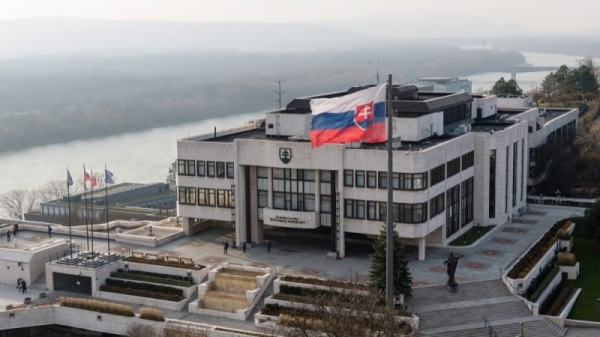Slovak parliament condemns Russia, and calls it a terrorist regime

The National Council adopted a resolution Thursday, labelling Russia as a terrorist regime and condemning its widespread attacks on civilians, civilian objects, and a key energy structure.
In Thursday’s National Council meeting, lawmakers adopted the resolution with 78 votes in favour, barely clinching the needed simple majority of 76 in a 150-member house.
“I am happy that this resolution that we found the majority, although it is sad that only such a narrow one,” said Freedom and Solidarity lawmaker Ondrej Dostál – one of the resolution’s initiators.
The resolution condemns Russia’s direct and indirect threats to use nuclear weapons and reiterates parliament’s non-recognition of the referendum results in the regions of Donetsk, Luhansk, Kherson and Zaporizhzhya – territories it still views as part of Ukraine.
On top of that, parliament also expressed support for efforts to set up a special tribunal to prosecute crimes of aggression and support for prosecuting crimes against humanity and war crimes.
Meanwhile, 12 National Council members voted against the resolution.
These include members of the far-right Republic party and Our Slovakia People’s party, as well as one member from the ruling Ordinary People and Independent Personalities and two members from Smer-SD of former Prime Minister Robert Fico. The rest of Smer-SD abstained, as did 11 members from Hlas-SD of former Prime Minister Peter Pellegrini. Hlas-SD and Smer-SD currently lead the polls ahead of September’s snap elections.
Last week Smer-SD initiated a vote on a resolution that would essentially prohibit Slovakia from handing old Soviet jets, MiG-29s, to Ukraine – though it was pushed to next week.
Moreover, Smer-SD and Hlas-SD are pushing to move the snap elections currently announced for September to June – an idea supported by President Zuzana Čaputová despite her being the target of strong criticism from both opposition parties.
(Michal Hudec | EURACTIV.sk)



